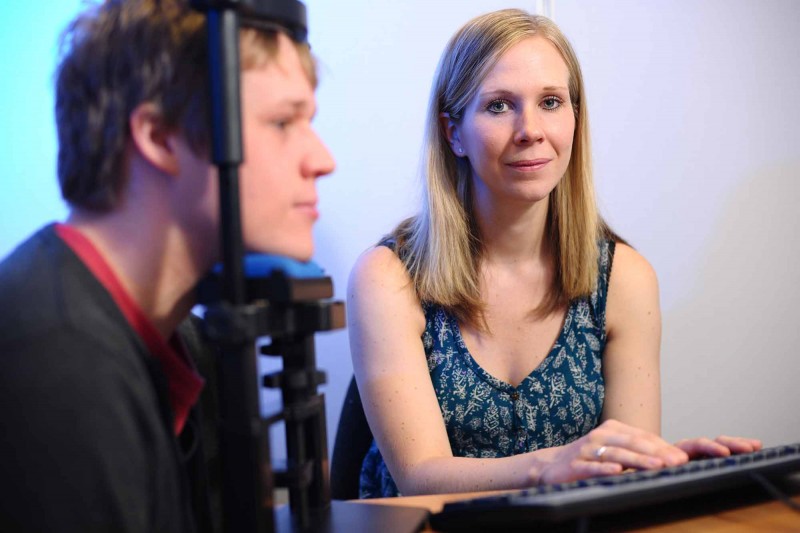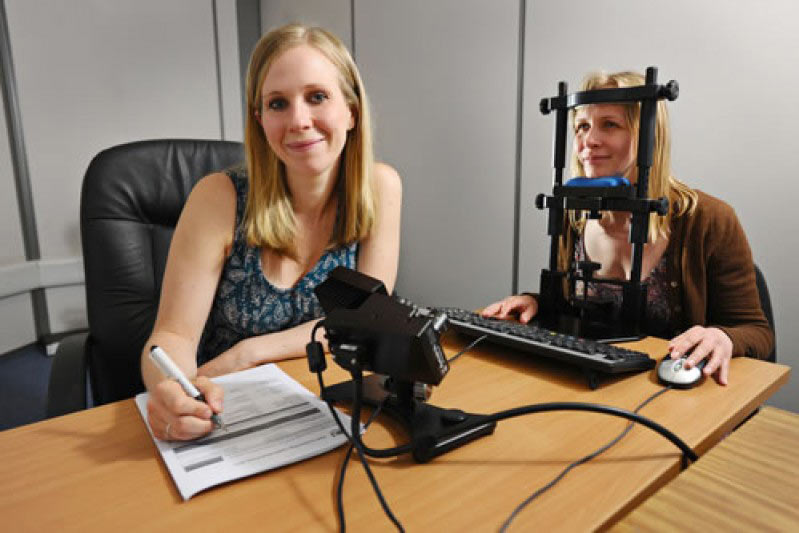Current Research Projects
Our research has been published in leading scientific journals, featured in documentaries on BBC1 and CBBC, and in outlets such as the Guardian, Independent, Times, Scientific American and New Scientist. While we are always running a variety of different projects, there are four main components of our on-going research:
Understanding the nature of developmental and acquired prosopagnosia in adulthood
Over the last 20-30 years there have been over a hundred case reports of individuals with prosopagnosia. However, it is only recently that we have had the opportunity to test large numbers of people with the condition. This is an important issue as different researchers have administered different tests to their participants, and it is very difficult to draw comparisons between cases in the existing literature. Thus, we are seeking to carry out detailed cognitive assessments of a large number of people with acquired or developmental prosopagnosia in an attempt to further our understanding of the condition, and to investigate whether different subtypes of prosopagnosia exist. Participation in this study requires two separate testing sessions, usually held at Bournemouth University. In the first session we will run basic tests of your visual and face processing skills, and we will be able to tell you if your performance falls into the criteria for prosopagnosia. If so, we will then invite you back for a second session where we carry out a more extensive battery of tests.
If you would like to register your details with us, please complete the brief form and questionnaire here.

Understanding the developmental pathway of face recognition
One of the most important outcomes of recent research into prosopagnosia is the realisation that many children also have the condition. Yet, very little work has explored the nature of prosopagnosia in children of any age, and how it may fluctuate over time. Indeed, it is possible that prosopagnosia may become increasingly severe with age, or that there is critical age where we have the best opportunity to improve face processing skills. Our current work is seeking to explore these issues, and we are very keen to hear from the parents or guardians of any children who seem to have difficulties with face recognition. Initially, we will invite you to meet us at Bournemouth University and will carry out a few computerized face recognition tests with your child, if they are of an appropriate age. We will then discuss with you whether further research participation is something that may be of benefit to your child, but there is never any pressure to participate further.
If you would like to register your child's details with us, please complete the brief form and questionnaire here.
Improving face processing skills in adults and children with prosopagnosia
The question that we most frequently get asked is whether there is a 'cure' for prosopagnosia. The quick answer is 'no', and it is very unlikely that we will be able to restore a person's face recognition abilities to a normal level in the foreseeable future. Having said this, it is possible that we may be able to bring about at least some improvement via participation in a training programme. We are currently evaluating the utility of different training programmes with both adult and child participants, and can offer the opportunity for participation should any individual meet the criteria for prosopagnosia in our initial screening sessions. Please remember that we are not currently making any claims that our programmes work, and that this is the very thing we are investigating!

Understanding why some people never forget a face
A final component of our work concerns the investigation of 'super-recognizers', or those people who are really excellent at face recognition. Almost unbelievably, some people can recall faces of people who they briefly met a long time ago. Further understanding of the strategic nature of face processing in these individuals may help us to create training programmes for people with prosopagnosia, and provides us with a greater theoretical understanding of the full range of abilities on the face processing spectrum. We are also working closely with the Police and other security agencies to investigate the use of super-recognizers in national security. You can read about this work in the New Scientist and Scientific American.
If you think you may be a super-recognizer and live within travelling distance of Bournemouth University, please register your details with us here.